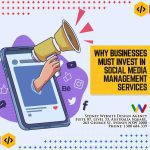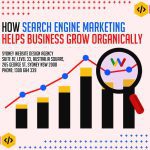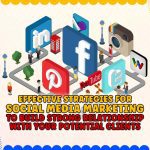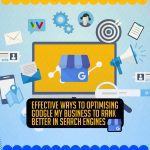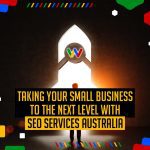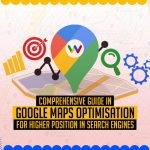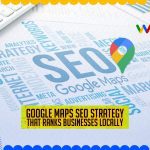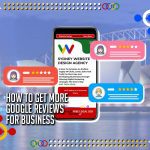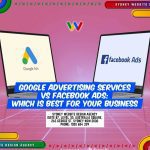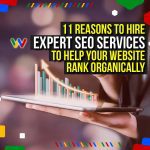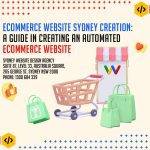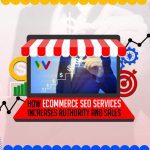The Undeniable Value of SEO and Web Design Company Contributes to Businesses Success
When you invest in a company, it’s simple to determine how much money you’ll make. You know what your margins are if you buy X to resell.
You have a good idea what your ROI will be. However, when it comes to SEO and web design, many company executives find it more difficult to understand why it is essential.
The advantages appear to be intangible. It appears like a lot of effort. The same is true with search engine optimisation. Do you really have to optimise your website to rank in search engines? Is it true that everyone does it?
But, more importantly, is it really worth it? You have your doubts. We understand. You’re not the first person to ask such questions.
Let’s help you see things more clearly and show you the undeniable value as SEO and web design company contributes to a small business’s success.
Introduction
When it comes to running a small business, managing your resources well is one of the core essence. You have to be able to wear many hats and juggle many responsibilities to keep your business afloat. This is why it’s so important to make use of all the assets available.
An SEO and web design company can help your small business in many ways. First, they can help you with your website design. A well-designed website is essential for any small business, as it serves as your online shopfront and can help you attract new customers. Additionally, SEO and web design companies can help you with your SEO and online marketing. They can help you create effective online marketing campaigns that will help you attract more customers and grow your business.
Ultimately, the value that SEO and web design company provides to small businesses cannot be denied. If you’re investigating how to grow your business, then consider working with an SEO or web design company instead of trying to do design your own website and making it work.
Table of Contents
- Benefits of Having an SEO and Web Design Company
- Outcome Of Poorly Designed Websites
- The Cost of Not Having an SEO and Web Design Company for Your Brand
- Right Time to Hire an SEO and Web Design Company
- Advantages that SEO and Web Design Teams Contributes to Your Business
- Qualities to Look For When Hiring SEO and Web Design Company
- Ongoing SEO strategy planning
- Measuring the outcome of the campaign
Benefits of Having an SEO and Web Design Company

An SEO and web design company is a team of digital marketing specialists that helps businesses improve their online visibility. It’s more than just website design, although that is one of our core services.
It also includes digital marketing strategies like search engine optimisation (SEO), content marketing, social media marketing, email marketing, and pay-per-click (PPC) advertising. These are all essential components of a comprehensive digital marketing strategy.
The main goal of an SEO and web design company is to help businesses attract more website visitors, convert more leads into customers, and achieve their desired results.
What are the benefits of having an SEO and web design company?
There are many benefits of having an SEO and web design company. Here are some of the most important ones:
Improved online visibility
One of the main advantages of working with an SEO and web design company is that it can help improve your online visibility. Search engine optimisation (SEO) is all about improving your website’s ranking in search engine results pages (SERPs).
The higher your website ranks, the more likely people are to find it. And when people can find your website, they’re more likely to visit it and learn about your product or service.
More website visitors
Improved online visibility leads to more website visitors. When your website ranks higher in search engine results, you’ll get more clicks, and more people will visit your site.
Increased leads and sales
More website visitors mean more leads and sales. If you can attract more visitors to your site, you’ll have a better chance of converting them into customers. And the more customers you have, the more revenue you’ll generate for your business.
Competitive advantage
An SEO and web design company can give you a competitive advantage. If your competitors are not investing in SEO or digital marketing, you can gain an edge by doing so.
Cost-effective marketing
Another benefit of working with an SEO and web design company is that it’s a cost-effective way to market your business. SEO is one of the most affordable and effective digital marketing strategies. It’s also long-term and sustainable, which means you can enjoy the benefits for years to come.
Measurable results
You can measure the results of your SEO efforts. There are many tools and analytics platforms that you can use to track your website’s traffic and performance. This data will help you see how well your SEO strategy is working and whether you need to make any changes.
Increased brand awareness
SEO and web solutions can help you increase brand awareness. When your website ranks higher in search engine results, people will see your brand more often. This increased exposure can lead to more customers and sales.
Greater trust and credibility
When people see your brand in search engine results, they’ll be more likely to trust and believe in your products or services. This trust and credibility can lead to more customers and sales.
Improved customer experience
An SEO and web design company can help you improve the customer experience on your website. If your site is easy to use and navigate, people will be more likely to stay on it longer and buy from you. With web development services, it would be easier to arrive at a seamless and more user-friendly design for your existing site.
Long-term benefits
The benefits of working with an SEO and web design company are long-term. It is not limited to building websites alone. Once you’ve achieved your desired results, you can continue to enjoy the benefits for years to come.
If you want to improve your online visibility, attract more website visitors, and generate more leads and sales, an SEO and web design company can help. Investing in these services is an important part of any small business’s success.
Outcome Of Poorly Designed Websites
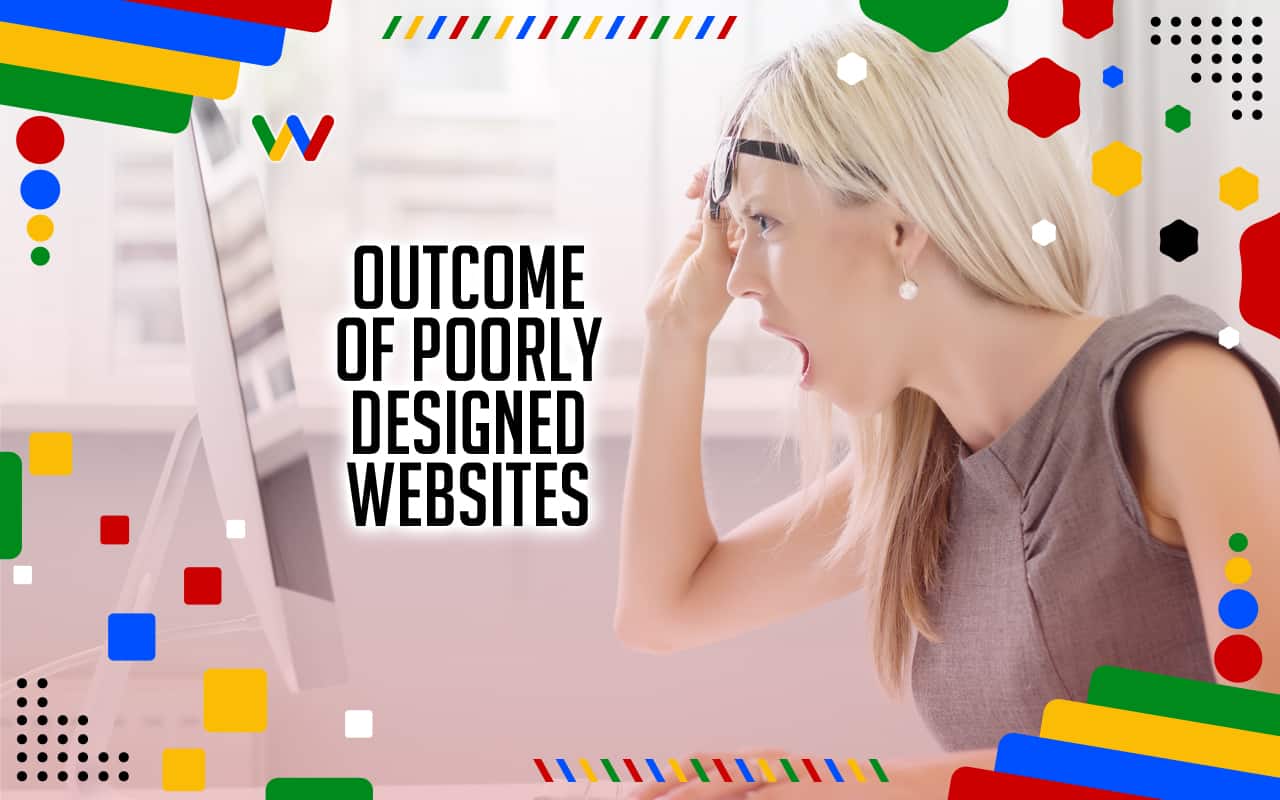
Although web designers frequently advocate for a good, user-friendly website presence, businesses still struggle to justify the expense of a web redesign and improvement.
In today’s world, which is defined by technology, a solid web design is more than just a status symbol. Usability, experiences, and information – or a lack thereof – may have a significant impact on an eCommerce site. There are serious consequences for not maintaining your website; however, businesses might be unaware of the seriousness of the situation.
Businesses may already realise the value of website design, yet they still fail to make the investment of time and capital. Some due to budget restrictions, lack of awareness, or the lack of eagerness to fast track the success of their business.
But what defines a poorly designed website? And, more importantly, what are the consequences of having one?
A website that is not designed with the user in mind will have a high bounce rate. The website’s content might be challenging to find or understand. The overall aesthetic might be outdated or unappealing. Users may have difficulty navigating the site, and the purchasing process might be convoluted.
These deficiencies all lead to one thing: a poor user experience (UX). A website with a poor UX will see users leave quickly – often without making a purchase or even taking the time to learn about your business. In short, a poorly designed website results in lost revenue and opportunities.
It is essential to understand that first impressions matter – especially when it comes to your website. In fact, it takes only 0.05 seconds for users to form an opinion about your site. If your website doesn’t make a good impression right away, you’ve already lost the chance to turn a visitor into a customer.
The consequences of having a poorly designed website can be significant. Here are some of the most common ways in which a bad website can affect your business:
You’ll lose customers
If your website is difficult to use or navigate, people will simply leave and go to a competitor’s site. In fact, research has shown that poor UX can cost businesses up to 75% of their potential online sales.
Your search engine ranking will suffer
Search engines like Google consider the user experience when determining where to rank websites in search results. If your site has a high bounce rate, it’s likely that your ranking will suffer as a result.
You’ll miss out on opportunities
A poorly designed website will prevent you from taking advantage of opportunities to generate leads and sales. For example, if your site isn’t mobile-friendly, you’ll miss out on the growing number of people who are using their smartphones to shop online. If your landing pages will not appear in Google Search results, you’ll fail to receive the organic traffic that you need to get your website and brand going.
Branding will suffer
Your website is often the first point of contact between your business and potential customers. If your site doesn’t reflect your brand well, it can damage your reputation and make it more difficult to attract new customers.
You’ll waste money
A poorly designed website is a wasted investment. Not only will you miss out on opportunities to generate revenue, but you’ll also have to spend money on redesigning and improving your site down the road.
The Cost of Not Having an SEO and Web Design Company for Your Brand
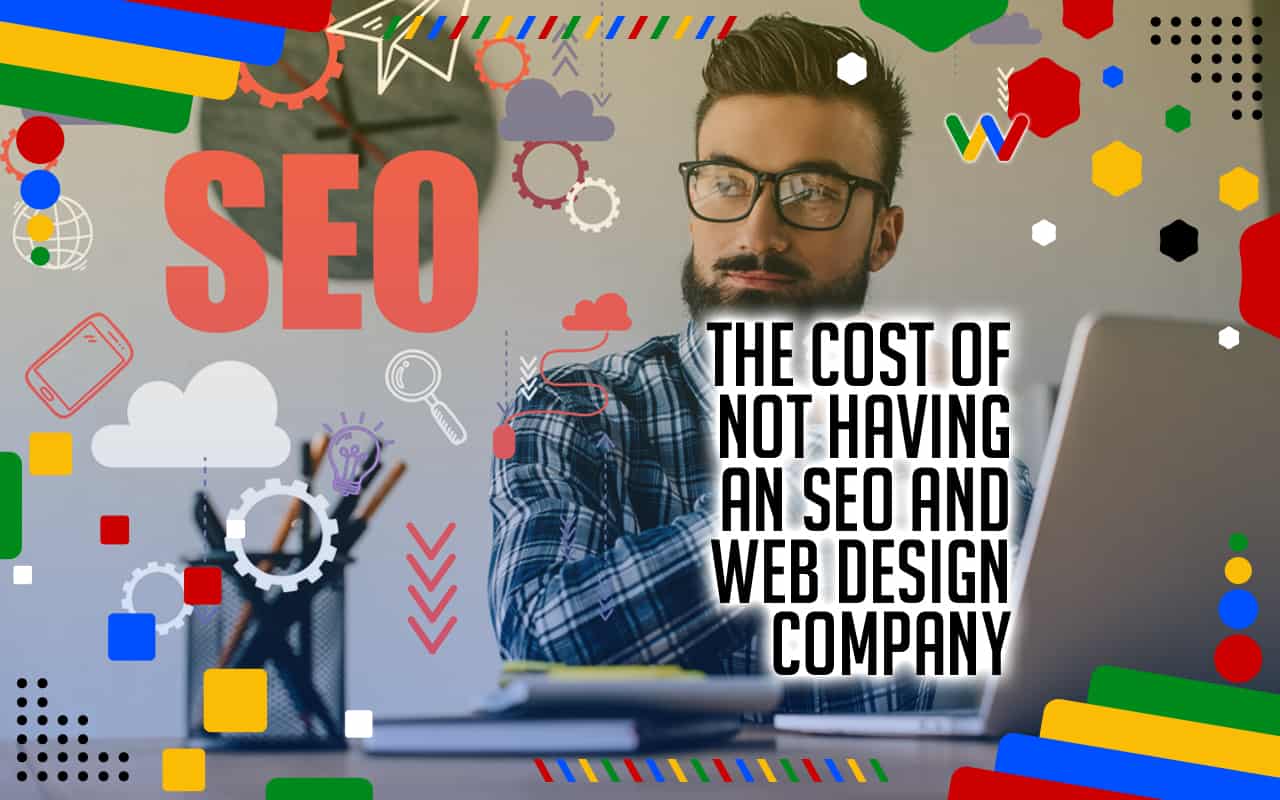
We’ve covered potential problems that might harm your website, but what is the financial effect on you? It’s difficult to quantify how much money you’re losing from enraged visitors, but in general, a bad website:
Compromises Credibility
You are not sending a professional message if your website is clogged with animation, stock photos, and other virtual clutter.
Lost Touch with Clients
A website that isn’t updated regularly is not only bad for your SEO. An outdated website conveys to your customers that you are lagging in terms of technology, or worse, that you don’t care enough to keep it up-to-date.
Cost You Customers
It is affecting your brand’s reputation, as Google puts a lot of weight on histories in search engine results. If a consumer leaves your site in frustration because of broken links, difficult forms, or excessive navigation, they are unlikely to return.
Your loss is their gain if your competition has an intuitive website design and offers the same services.
But you can avoid the consequences of a poorly designed company website.
The best way to avoid the consequences of a poorly designed website is to invest in a high-quality web design from the start. Here are some things to keep in mind when choosing a web design company:
Make sure they understand your business
Before you hire a web design company, make sure they understand your business and your goals for the website. The last thing you want is a cookie-cutter site that doesn’t reflect your brand or help you achieve your business goals.
Look at their past work
When evaluating web design companies, take a look at their past work to get an idea of their style and quality. If you like what you see, that’s a good sign that they’ll be able to create a site that you’re happy with.
Ask about their process
Make sure the web design company you choose has a solid process for creating websites. They should be able to walk you through their process from start to finish so that you know what to expect.
Get a price estimate
Before you commit to working with a web design company, get a price estimate for the project. Make sure the price is in line with your budget and that there are no hidden fees.
Get everything in writing
Once you’ve decided on a web design company, make sure you get everything in writing. This includes the price, the timeline, and the scope of the project. Having everything in writing will help to avoid any misunderstandings down the road.
A poorly designed website can have a negative impact on your business in several ways. It can damage your credibility, cost you customers, and waste your money. Thus, investing in a web design company
Right Time to Hire an SEO and Web Design Company

Now that you know the importance of having a great website, you might be wondering when the right time to hire an SEO and web design company is. If you’re just starting out, it’s a good idea to do some research and figure out how to build a basic website yourself. Once your business starts to grow, and you get more visitors to your site, that’s when it’s time to invest in a professional web design.
When you’re ready to take your business to the next level, an SEO and web design company can help. They’ll make sure your site is optimised for search engines and that it has a professional look that will help you stand out from your competition. Investing in a good web design is an important step in growing your business.
Advantages that SEO and Web Design Teams Contributes to Your Business

There are many advantages that SEO and web design teams offer small businesses. Here are some of the most important ones:
Increased traffic
One of the most significant benefits of working with an SEO and web design team is that they can help increase traffic to your website. They’ll do this by optimising your site for search engines and making sure it has a professional look that will attract visitors.
More customers
By increasing traffic to your website, you’re also likely to see an increase in customers. This is because more people will be able to find your site and see what you have to offer.
Improved credibility
Having a professionally designed website will also help improve your credibility. This is because potential customers will see that you’re serious about your business and that you’re willing to invest in a high-quality website.
Save time
Building a website can be a time-consuming task, especially if you’re not familiar with web design. By working with an SEO and web design team, you can save yourself a lot of time and hassle.
Get results
Perhaps the most important benefit of working with an SEO and web design team is that you’re likely to see results. This is because they have the experience and knowledge necessary to get your site ranking high in search engines and to make it look professional.
Hiring an SEO and web design team is a critical step in growing your small business. These teams offer many benefits that can help you attract more customers, improve your credibility, and save time. If you’re ready to take your business to the next level, invest in a good web design.
Qualities to Look For When Hiring SEO and Web Design Company
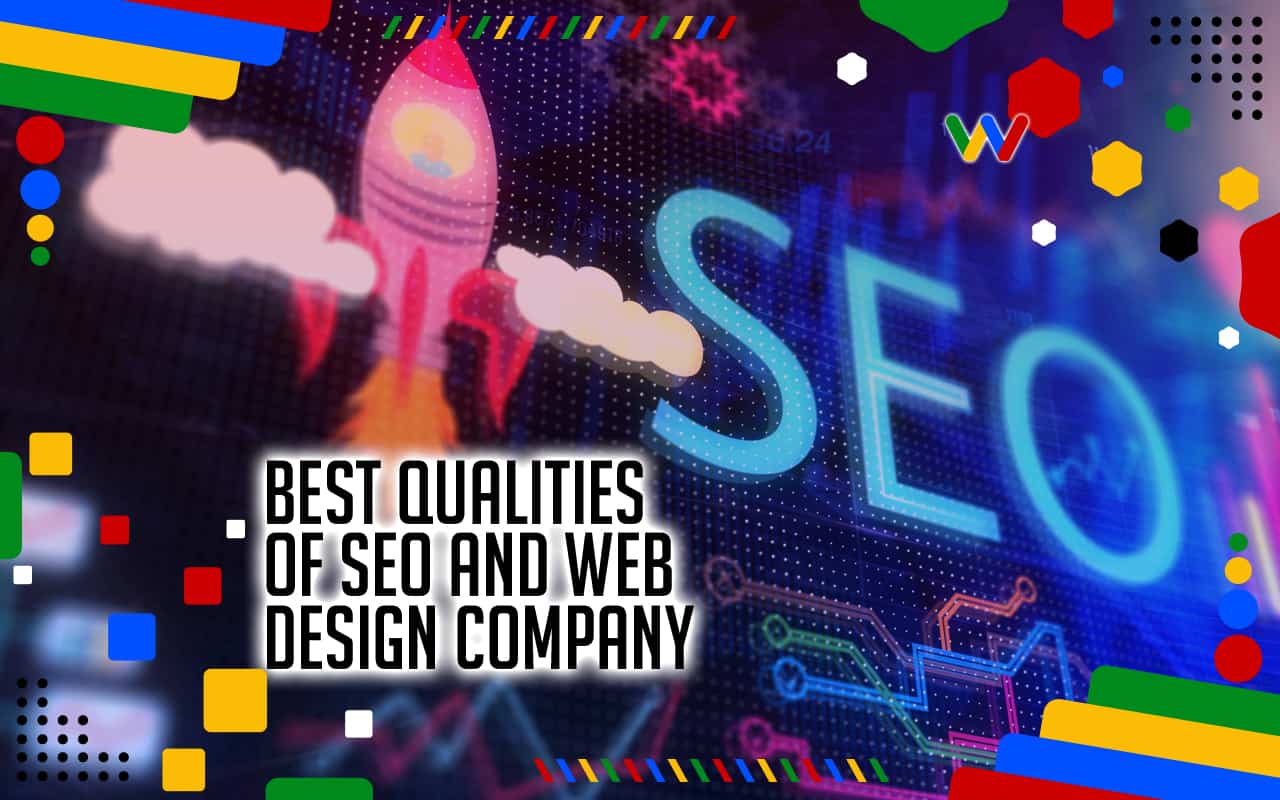
Not all web design companies are created equal. When you’re looking for one to work with, there are some important qualities you should look for:
Experience
One of the most critical things to look for in a web design company is experience. This will ensure that they have the knowledge and skills necessary to create a high-quality website for your business.
Process
A good web design company will have a solid process in place. This means they’ll be able to take you from start to finish, from concept to launch. Make sure you understand their process before you commit to working with them.
Quality
The quality of the work produced by the web design company is also essential. Be sure to look at their portfolio to see examples of their work.
Communication
It’s important to be able to communicate with the web design company you’re working with. This way, you can ask questions, provide feedback, and get clarification when needed.
Pricing
Be sure to get a few quotes from different web design companies before deciding. This will help you ensure you’re getting a fair price for the services you require.
Take your time when choosing a web design company to work with. By taking the time to find one that has experience, offers a solid process, produces high-quality work, and is easy to communicate with, you’ll be sure to find the right team for your needs.
Ongoing SEO Strategy Planning
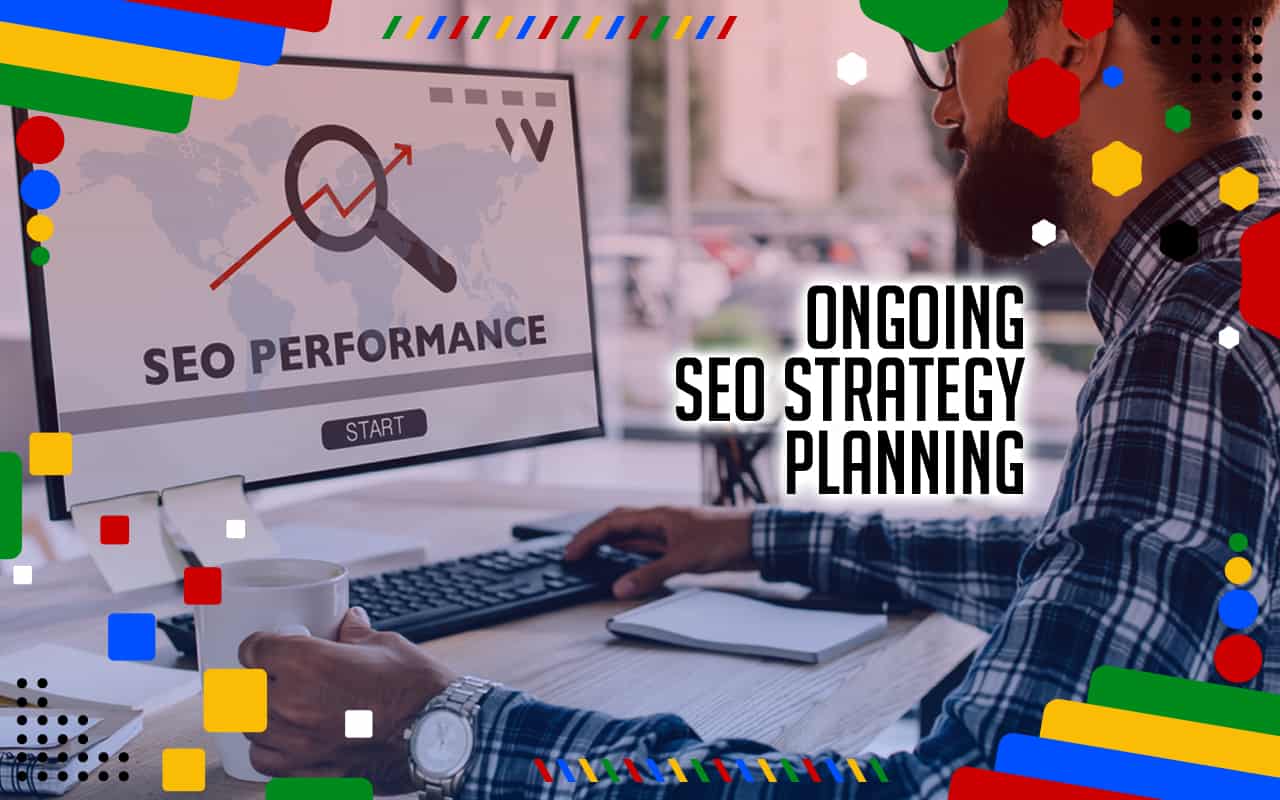
After your site is live, it’s indispensable to have an ongoing SEO strategy in place. This will help you ensure that your site continues to rank high in search engines and attract new visitors.
There are a few things you should consider when planning your SEO strategy:
- Keywords: What keywords do you want to target? Make sure they’re relevant to your business and that they have a high search volume.
- Content: Fresh, relevant content is essential for any SEO strategy. Be sure to add new blog posts, articles, or products regularly.
- Link building: Quality backlinks can help improve your site’s ranking. Reach out to other websites and ask to guest post or contribute to their blog.
- Social media: Promote your content on social media sites to reach a wider audience.
By having an ongoing SEO strategy, you can ensure that your site continues to rank well in search engines and attract new visitors.
The Bottom Line
Web design and SEO are both essential for any small business. These services can help you improve your online presence, attract more customers, and boost your bottom line. Invest in a good web design team to get started on growing your business today.
Measuring the Outcome of the Campaign
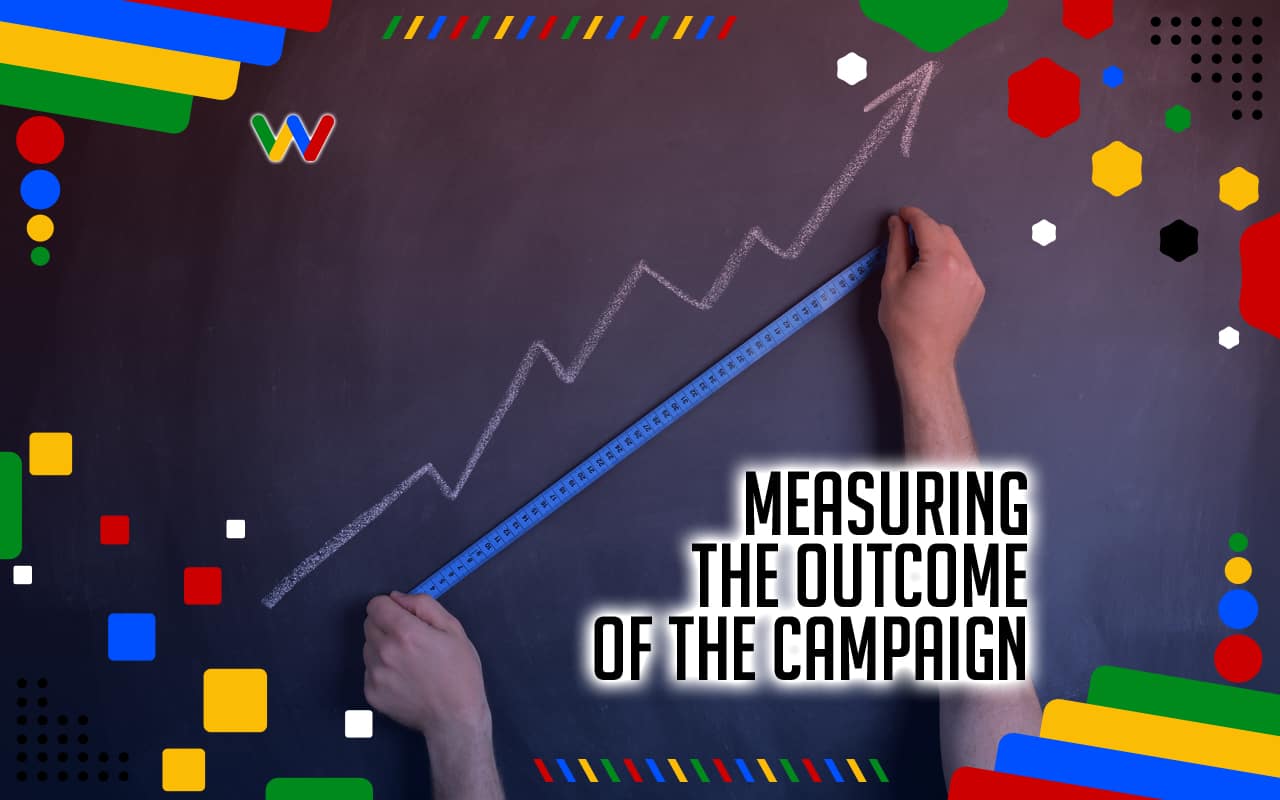
The final step in any marketing campaign is to measure the outcome. This helps you determine whether the campaign was successful and what, if anything, could be improved. There are a few key metrics you should track:
- Website traffic: How many people visited your website as a result of the campaign? You can track this using Google Analytics or another web traffic tracking tool.
- Leads generated: How many leads did you generate from the campaign? This includes people who signed up for your email list or requested additional information about your product or service.
- Sales generated: How many sales did you generate from the campaign? This is the most important metric to track, as it will show you whether the campaign was successful in generating revenue.
- Cost per lead/sale: How much did you spend on the campaign? This helps you determine whether the campaign was cost-effective.
There are many other metrics you can track, but these are the most essential ones to focus on. By tracking these metrics, you can determine whether the campaign was successful and what could be improved.
SEO and web design company are two of the most influential aspects of online marketing. They help small businesses improve their online presence and attract more customers. If you’re not investing in these services, you’re missing out on a valuable opportunity to grow your business.
SEO and Web Design Company Frequently Asked Questions
Does a web designer do SEO?
While some web designers do have experience with SEO, it’s not their main focus. For the best results, it’s advisable to work with a separate SEO specialist. This way, you can be sure that your site is designed with search engine optimisation in mind and that your SEO strategy is executed effectively.
Do web designers need to know search engine optimisation?
While some web designers do have experience with SEO, it’s not their main focus. For the best results, it’s advisable to work with a separate SEO specialist. This way, you can be sure that your site is designed with search engine optimisation in mind and that your SEO strategy is executed effectively.
What is an SEO designer?
An SEO designer is a web designer who specialises in creating websites that are optimised for search engines. They use various techniques, such as keyword research and link building, to improve your site’s ranking.
How long does it take to see results from SEO?
It can take several months to see results from an SEO campaign. This is because it takes time for Google to index and rank your site. However, you should start seeing some results within a few weeks. If you don’t see any results after several months, then you may need to revise your SEO strategy.
What digital marketing services do you offer?
Why should I choose your web design agency for my digital marketing needs?
Why should I invest in your web design agency for my online business?
Trust our expertise in marketing services to elevate your brand through captivating service pages and digital marketing strategies.
Why choose your web design agency for online business needs?
Backed by web experts proficient in web development, we craft sites that stand out in the digital landscape. Partnering with leading SEO agencies, we ensure your site is SEO web optimised, driving organic traffic and maximising visibility. Trust our design services to transform your online presence and elevate your business to new heights.
SEO and Web Design are Indispensable Factors to Your Website’s Success

SEO and web design company are two of the most critical aspects of online marketing. They help small businesses improve their online presence and attract more customers. If you’re not investing in these services, you’re missing out on a valuable opportunity to grow your business.
Top 50 SEO Questions Answered by SEO Specialists
1. What is SEO, and why is it important for businesses?
SEO, or Search Engine Optimisation, is a vital component of digital marketing strategy, particularly for businesses aiming to boost website traffic and enhance business growth.
As a full service digital agency with a focus on search engine marketing, we at Sydney Digital Marketing understand its significance. Utilising bespoke SEO strategies and white hat techniques, our SEO specialists ensure your website ranks high on major search engines, driving more organic search results.
With monthly SEO reports and on page optimisation, we optimise your site to reach your target audience effectively, resulting in increased visibility, credibility, and ultimately, conversions.
Trust our Sydney SEO team to elevate your digital presence and propel your business forward.
2. How does SEO work?
SEO works by optimising various aspects of a website, including on-page elements like content and meta tags, off-page factors like backlinks, and technical aspects like site speed and mobile-friendliness.
By improving these elements, a website can rank higher in search results and attract more organic traffic.
3. What are the main components of SEO?
The main components of SEO include on-page optimisation, off-page optimisation, and technical SEO. On-page optimisation involves optimising content, meta tags, and other elements on individual web pages. Off-page optimisation focuses on building backlinks and improving the website’s authority. Technical SEO deals with factors like site speed, mobile-friendliness, and crawlability.
4. How does SEO differ from SEM?
SEO (search engine optimisation) is focused on improving organic search rankings and attracting organic traffic, while SEM (search engine marketing) involves paid advertising strategies like Google Ads to increase visibility in search results.
5. What are the benefits of hiring an experienced SEO agency?
Hiring an experienced SEO agency can bring several benefits, including expertise in SEO best practices, access to advanced tools and technologies, customised strategies tailored to your business goals, and the ability to track and measure results effectively.
6. How can SEO help businesses achieve growth?
SEO can help businesses achieve growth by increasing their online visibility, attracting more organic traffic, generating leads and conversions, improving brand awareness and credibility, and ultimately driving revenue and profitability.
7. What is a local SEO campaign, and why is it important for local businesses?
A local SEO campaign is focused on optimising a website to rank higher in local search results, especially for location-based queries. It’s important for local businesses because it helps them attract nearby customers who are searching for products or services in their area.
8. What are some ethical SEO practices that businesses should follow?
Ethical SEO practices include following search engine guidelines, avoiding black hat techniques like keyword stuffing and link schemes, prioritising user experience and quality content, and focusing on long-term, sustainable results.
9. How can businesses measure the success of their SEO traffic?
Businesses can measure the success of their SEO traffic by tracking key metrics like organic traffic, keyword rankings, conversion rates, bounce rates, and ROI (return on investment). Tools like Google Analytics and Google Search Console can help monitor these metrics.
10. What are the key differences between on-page SEO and off-page SEO?
On-page SEO involves optimising elements on individual web pages, such as content, meta tags, and internal links, to improve search rankings. Off-page SEO focuses on building external links, social signals, and other factors that influence the website’s authority and reputation.
11. Why is content marketing important for SEO?
Content marketing is important for SEO because it helps businesses create valuable, relevant, and engaging content that attracts organic traffic, earns backlinks, and improves search rankings. High-quality content also enhances user experience and encourages social sharing.
12. How can businesses choose the right SEO agency for their needs?
Businesses can choose the right SEO agency by considering factors like experience, expertise, reputation, client testimonials, case studies, pricing, communication style, and alignment with their business goals and values.
13. What is the role of link building in an effective SEO strategy?
Link building plays a crucial role in an effective SEO strategy by improving the website’s authority, credibility, and visibility in search results. High-quality backlinks from reputable websites signal to search engines that the site is trustworthy and relevant.
14. How does mobile SEO differ from desktop SEO?
Mobile SEO focuses on optimising a website for mobile devices, ensuring fast loading times, responsive design, and intuitive navigation. With the increasing use of smartphones and tablets, mobile SEO has become essential for reaching and engaging mobile users.
15. What are some common pitfalls to avoid in SEO?
Some common pitfalls to avoid in SEO include keyword stuffing, duplicate content, thin or low-quality content, slow loading times, broken links, poor site architecture, and ignoring technical SEO issues.
16. What role does content marketing play in SEO?
Content marketing plays a crucial role in SEO by providing valuable, relevant, and engaging content that attracts organic traffic, earns backlinks, and improves search rankings. High-quality content also enhances user experience and encourages social sharing.
17. How can businesses leverage social media advertising for SEO?
Businesses can leverage social media advertising for SEO by promoting their content on social platforms, engaging with their audience, building brand awareness and authority, and earning social signals that influence search rankings.
18. What is the importance of a solid SEO strategy for business success?
A solid SEO strategy is essential for business success because it helps businesses increase their online visibility, attract more organic traffic, generate leads and conversions, and ultimately drive revenue and profitability.
19. How can businesses avoid lock-in contracts when hiring an SEO agency?
Businesses can avoid lock-in contracts by carefully reviewing the terms and conditions of the SEO agency agreement, negotiating flexible terms, setting clear expectations upfront, and prioritising transparency and accountability in the partnership.
20. What are the key elements of a successful SEO campaign?
The key elements of a successful SEO campaign include comprehensive keyword research, on-page optimisation, off-page optimisation, technical SEO, content creation, link building, and regular monitoring and optimisation based on performance metrics.
21. What is the role of monthly SEO reports in tracking campaign progress?
Monthly SEO reports provide valuable insights into campaign performance, including key metrics like organic traffic, keyword rankings, backlink profile, and conversion rates. These reports help businesses track progress, identify trends, and make informed decisions to optimise their SEO strategy.
22. How can businesses achieve first-page rankings in search engine results?
Achieving first-page rankings in search engine results requires a combination of factors, including comprehensive keyword research, on-page optimisation, high-quality content creation, strategic link building, and ongoing monitoring and optimisation based on search engine algorithms.
23. What are some effective SEO strategies for small businesses with limited budgets?
Some effective SEO strategies for small businesses with limited budgets include focusing on long-tail keywords, optimising local SEO, leveraging user-generated content and social media, building relationships with influencers, and investing in high-impact tactics that deliver maximum ROI.
24. What are the best practices for conducting keyword research in SEO?
Best practices for conducting keyword research in SEO include identifying relevant keywords and phrases related to your business, analysing search volume and competition, targeting long-tail keywords with low competition, and prioritising high-value keywords that align with your business goals.
25. How can businesses optimise their website for local SEO?
Businesses can optimise their website for local SEO by creating and optimising Google My Business listings, optimising on-page elements like title tags and meta descriptions with local keywords, building citations and local backlinks, and encouraging customer reviews and testimonials.
26. What is the importance of user experience in SEO?
User experience is important in SEO because search engines like Google prioritise websites that provide a positive user experience, including fast loading times, intuitive navigation, mobile-friendliness, and high-quality content. A better user experience leads to higher engagement, lower bounce rates, and improved search rankings.
27. How can businesses stay updated on the latest SEO trends and best practices?
Businesses can stay updated on the latest SEO trends and best practices by following reputable SEO blogs and publications, attending industry conferences and webinars, networking with other professionals in the field, and investing in ongoing training and education for their team.
28. What are some common misconceptions about SEO?
Some common misconceptions about SEO include the belief that it’s a one-time effort, that keyword density is the most important factor, that link building is dead, and that SEO is only about ranking higher in search results rather than providing value to users and meeting their needs.
29. How can businesses optimise their website for voice search?
Businesses can optimise their website for voice search by targeting conversational keywords and phrases, optimising content for featured snippets, providing clear and concise answers to common questions, and improving site speed and mobile-friendliness for a better user experience.
30. What role does structured data markup play in SEO?
Structured data markup, also known as schema markup, helps search engines understand the content and context of a web page, leading to enhanced visibility and richer search results. It can improve click-through rates, increase traffic, and provide a better user experience.
31. What are some effective strategies for building high-quality backlinks?
Some effective strategies for building high-quality backlinks include creating valuable and shareable content that attracts natural links, reaching out to relevant influencers and bloggers for collaborations, guest posting on authoritative websites, and participating in industry forums and communities.
32. How can businesses recover from a Google algorithm update that negatively impacts their search rankings?
Businesses can recover from a Google algorithm update by conducting a thorough audit of their website, identifying any issues that may have caused the drop in rankings, making necessary improvements to comply with Google’s guidelines, and focusing on delivering high-quality content and a positive user experience.
33. What are some key metrics to track in an SEO campaign?
Some key metrics to track in an SEO campaign include organic traffic, keyword rankings, backlink profile, bounce rate, time on page, conversion rate, ROI (return on investment), and overall website visibility in search engine results pages (SERPs).
34. How can businesses optimise their website for featured snippets?
Businesses can optimise their website for featured snippets by targeting question-based keywords, providing clear and concise answers in their content, structuring content in a format that’s easy for search engines to understand, and optimising meta tags and headings for relevance and clarity.
35. What are the benefits of hiring an SEO agency with experience in ecommerce SEO?
Hiring an SEO agency with experience in ecommerce SEO can bring several benefits, including expertise in optimising product pages, category pages, and navigation for better search visibility, improving site architecture and internal linking for enhanced user experience, and driving more traffic and sales through organic search.
36. How can businesses improve their website’s page speed for better SEO performance?
Businesses can improve their website’s page speed for better SEO performance by optimising images and multimedia content, minifying CSS and JavaScript files, leveraging browser caching and content delivery networks (CDNs), reducing server response times, and using responsive design for mobile-friendliness.
37. What are the best practices for conducting a technical SEO audit?
Best practices for conducting a technical SEO audit include reviewing site architecture and URL structure, analysing crawlability and indexability issues, checking for duplicate content and canonicalization errors, evaluating site speed and mobile-friendliness, and identifying and fixing broken links and redirects.
38. How can businesses optimise their website for international SEO?
Businesses can optimise their website for international SEO by creating separate country-specific or language-specific versions of their site, using hreflang tags to indicate language and regional targeting, optimising content and meta tags for local keywords and cultural nuances, and building backlinks from relevant international websites.
39. What are the key factors to consider when choosing keywords for SEO?
Key factors to consider when choosing keywords for SEO include relevance to your business and target audience, search volume and competition, user intent and behaviour, seasonality and trends, and long-tail variations that reflect specific topics or questions related to your industry.
40. What is the role of user intent in SEO, and how can businesses optimise for it?
User intent refers to the underlying motivation or purpose behind a user’s search query, whether it’s informational, navigational, or transactional. Businesses can optimise for user intent by understanding their target audience’s needs and preferences, creating relevant and valuable content that aligns with different stages of the buyer’s journey, and providing clear calls-to-action to guide users toward their desired outcome.
41. How can businesses leverage video content for SEO?
Businesses can leverage video content for SEO by optimising video titles, descriptions, and tags with relevant keywords, creating engaging and shareable videos that attract natural backlinks and social signals, embedding videos on relevant web pages to increase dwell time and reduce bounce rates, and promoting videos across social media and other digital channels to reach a wider audience.
42. What is the role of user-generated content in SEO, and how can businesses encourage it?
User-generated content (UGC) plays a valuable role in SEO by providing fresh, authentic, and diverse content that attracts organic traffic, earns backlinks, and enhances user engagement and social proof. Businesses can encourage UGC by soliciting reviews and testimonials, hosting contests and giveaways, featuring user-generated photos and videos, and fostering community engagement through forums and social media.
43. What are the benefits of using long-form content for SEO?
Long-form content offers several benefits for SEO, including the ability to cover complex topics in depth, provide comprehensive answers to user queries, target a wider range of keywords and search queries, earn more backlinks and social shares, increase dwell time and reduce bounce rates, and establish authority and expertise in your niche.
44. How can businesses optimise their website for voice search?
Businesses can optimise their website for voice search by targeting conversational keywords and phrases, optimising content for featured snippets, providing clear and concise answers to common questions, and improving site speed and mobile-friendliness for a better user experience.
45. What is the role of structured data markup in SEO, and how can businesses implement it?
Structured data markup, also known as schema markup, helps search engines understand the content and context of a web page, leading to enhanced visibility and richer search results. Businesses can implement structured data markup by adding schema.org markup to their HTML code, using Google’s Structured Data Markup Helper, and testing the markup with Google’s Structured Data Testing Tool.
46. How can businesses optimise their website for mobile SEO?
Businesses can optimise their website for mobile SEO by implementing responsive design to ensure that the site adapts to different screen sizes and devices, optimising site speed for fast loading times on mobile devices, optimising content and navigation for mobile users, and leveraging mobile-specific features like click-to-call buttons and location-based targeting.
47. What are some common SEO mistakes to avoid?
Some common SEO mistakes to avoid include ignoring technical SEO issues, neglecting on-page optimisation, focusing on quantity over quality when building backlinks, neglecting mobile optimisation, keyword stuffing, using outdated or black hat SEO tactics, and failing to track and analyse performance metrics.
48. How can businesses leverage social media marketing to enhance their SEO efforts?
Businesses can leverage social media marketing to enhance their SEO efforts by promoting their content on social platforms to increase visibility and attract backlinks, engaging with their audience to build brand awareness and authority, and earning social signals that influence search rankings.
49. What is the role of content marketing in SEO, and how can businesses create effective content?
Content marketing plays a crucial role in SEO by providing valuable, relevant, and engaging content that attracts organic traffic, earns backlinks, and improves search rankings. Businesses can create effective content by conducting keyword research to identify relevant topics and keywords, addressing user intent and needs, providing comprehensive and well-researched information, and optimising content for readability, shareability, and search visibility.
50. How can businesses measure the success of their SEO efforts, and what are some key performance indicators (KPIs) to track?
Businesses can measure the success of their SEO efforts by tracking key performance indicators (KPIs) such as organic traffic, keyword rankings, backlink profile, conversion rates, bounce rates, time on page, and ROI (return on investment). By monitoring these metrics regularly, businesses can assess the effectiveness of their SEO strategy and make data-driven decisions to optimise their performance and achieve their goals.
















